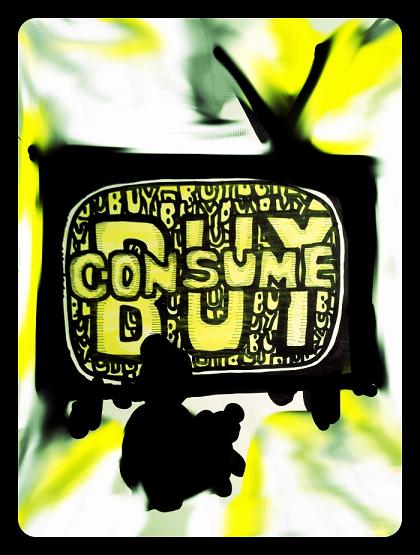[dropcap style=”font-size:100px; color:#992211;”]E[/dropcap]xamining the The Morality of the Comfortable Pragmatists.
Possessions
Images, news stories, internet vines, documentaries. The full force of 21st century mass media all day, every day. We have entered a time which sees the onslaught of three seemingly different forces all driven by gratuitous imagery: 1. the extravagance of wealth and luxury given specific programming on more than one channel; programmes which examine what it is to be young and rich, a minor royal, an ostentatious rock star; reality television which is concentrated on the lifestyle of the privileged and famous. Occasionally, this kind of programming/news story is vaguely critical and snide, as in The Rich Kids of Instagram (Channel 4)
With lifestyle porn in the vain of MTV Cribs, whether we are following Peter Andre or Joey Essex or Craig David, we are expected to want the things they have and follow the fashions they follow (albeit in diluted ways that we can afford). What these programs and stories have in common is the constant shot of, or picture of, or description of, consumer products.
‘To the consumer, the cultural goods and services sold in the market appear to offer the promise of a richly developed and creative individuality, yet the inherent commodification severely restricts and stunts the human psyche, so that the man and the woman consumer has little “time for myself”, because of the continual personification of cultural roles over which he and she exercise little control. In personifying such cultural identities, the person is a passive consumer, not the active creator, of his or her life; the promised life of individualistic creativity is incompatible with the collectivist, commercial norms of bourgeois culture,’
– Cluley, R. and Dunne, S. (2012) From Commodity Fetishism to Commodity Narcissism, Marketing Theory, 12(3)
The constant images teach us what to covet but never deliver on their promise. They appear and re-appear again and again, sometimes in the possession of irritating vacuous young people who, although often truly awful, are being exploited by savvy TV execs, or sometimes in the possession of antiquated aristocrats (like the aptly named ‘F**king Fulfords’), or perhaps in the possession of a well-meaning but simple reality star who stands for the every-person we could be.
The products win out though, they survive whichever idiot possesses them untarnished by the obnoxious and the foolish alike, we are effectively exposed to stuff, things, products, which take on central importance and gather greater and greater allure through the continuous exposure they are allowed by our media.
It may be useful to think again about the ideas of Thorstein Veblen (born July 30, 1857 – August 3, 1929), an American theorist who most famously described the phenomenon of ‘Conspicuous Consumption’ (whereby the possession of certain products and goods stands for the status and value of a person).
In a culture revolving around the acquisition of wealth and, by extension, consumer products, other valuable attributes such as kindness, intelligence, inventiveness and creativity are subordinated to the accumulation of wealth and the possession of luxury items. When this is thwarted for the poor and dispossessed, we end up with the ‘shopping with violence’ phenomenon of the London riots or the ‘Black Friday’ insanity.
Opposition to this culture comes from unlikely allies: churchmen following Christ’s all too clear statements on wealth:
‘It is easier for a camel to go through the eye of a needle than for a rich man to enter the kingdom of God,’ – Luke 18:24-27
Christ has long been an inconvenience for many people who claim to act in his name for just such unambiguous statements. His unlikely allies?: left-leaning philosophers and theorists following Marx’s ideas of commodity fetishism:
“In Karl Marx’s critique of political economy, commodity fetishism is the perception of the social relationships involved in production, not as relationships among people, but as economic relationships among the money and commodities exchanged in market trade. As such, commodity fetishism transforms the subjective, abstract aspects of economic value into objective, real things that people believe have intrinsic value…”
– Isaak Illich Rubin, Essays on Marx’s Theory of Value. Montreal: Black Rose Books, 1990, p. 5.
But of course they don’t have intrinsic value, only the value we project onto them. In so doing we drain ourselves. As we arrive at one mirage to drink it vanishes, we see another on the horizon and trudge on to quench our thirst.
But possessions are not the least of our comforting addictions. We also wallow in Suffering and its reward mechanism – Charity.
Those though, are for another essay, another day.
Inset image by Dan Booth. Not to be reproduced without express prior permission.

Michael Eden is a visual artist, researcher and writer at the University of Arts London exploring relationships between monstrosity, subjectivity and landscape representation.





















